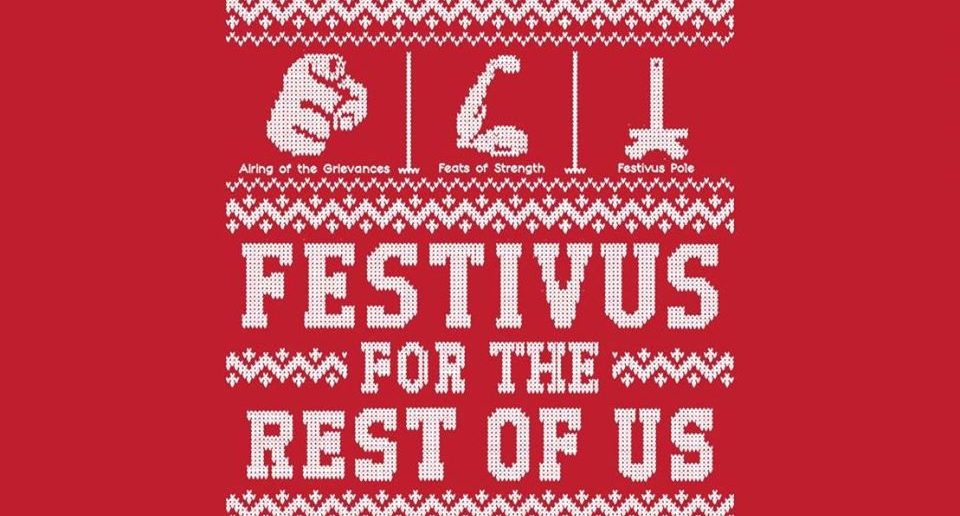Many of you are familiar with the Seinfeld episode “Strike” in which the Costanza family initiates Jerry, Kramer, and Elaine into the traditions of Festivus. So, is Festivus really a “thing”?
As depicted in the Seinfeld episode, Festivus is celebrated on December 23rd as an alternative to the often pressure filled, commercialized, and hectic winter holidays we celebrate. The celebration includes a Festivus dinner, meatloaf; an unadorned aluminum Festivus pole; practices such as the “airing of grievances,” when you tell all those around you how badly they have disappointed you throughout the year; “feats of strength,” when the head of the household challenges one person to a wrestling match; and the labeling of easily explained events as “Festivus miracles!”.
The TV episode, broadcast originally in 1997, revolves around Frank Costanza telling Kramer how he first invented Festivus and agreeing to hold a celebration. During the celebration, Frank “airs” his grievances about his son, George, then challenges his son to an arm-wrestling match as the “feat of strength”. As Festivus requires, the wrestling match continues until the head of the household is pinned.
Festivus was first conceived in the 1960’s by the father of Seinfeld writer Dan O’Keefe. The name derives from the Latin word festus, meaning joyous, holiday, or feast day. The O’Keefe family began celebrating the “holiday” as early as 1966. There were a few variations on the celebration. In the O’Keefe household, dinner was usually turkey or ham, and the father nailed a clock in a bag to the wall each year as part of the celebration. The meaning of this has remained a mystery to the son, as his father told him it was not for him to know. The phrase “Festivus for the rest of us” originally referred to those remaining after the death of the senior O’Keefe’s mother in 1976, the “rest of us” being those still living. Yeah – it is weird.
So, as you settle in and gather with family to celebrate the winter holidays, remember Festivus. It is a great excuse for a fun family gathering. You can always make your own family rules.

